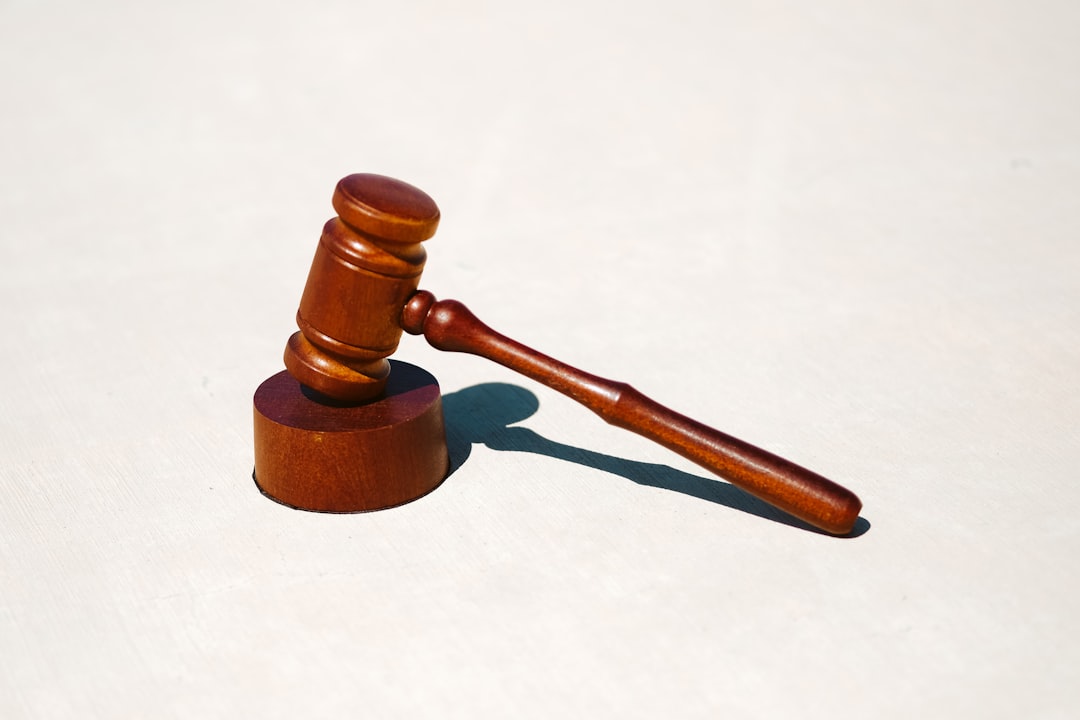The Telephone Consumer Protection Act (TCPA) protects South Carolina residents from unwanted phone calls, particularly from marketing and telemarketing entities. In Florence, law firms must navigate TCPA regulations to ensure explicit consent for promotional calls and avoid penalties. Unwanted call law firms in SC play a vital role in guiding businesses on consent, privacy, and compliance, preventing intrusions while promoting effective legal service marketing strategies.
In the digital age, understanding consent in the context of unwanted calls is crucial, especially for law firms operating in South Carolina. The Telemarketing Consumer Protection Act (TCPA) regulations play a pivotal role in protecting consumers from harassing phone calls. This article explores how consent operates under TCPA guidelines, focusing on Florence, SC, laws. We’ll delve into the impact of unwanted calls, dissecting the legal implications for law firms and providing insights into navigating these complex regulatory waters.
TCPA Regulations: A Brief Overview

The Telephone Consumer Protection Act (TCPA) is a federal law designed to protect consumers from unwanted phone calls, text messages, and faxes, particularly from marketing and telemarketing firms. In South Carolina, as in many other states, this legislation has significant implications for call law firms and businesses engaging in outbound communication with potential clients.
The TCPA sets clear guidelines on how businesses can obtain and use consumer consent for phone contact. It requires companies to obtain explicit written consent before making automated or prerecorded calls, ensuring that consumers are aware of and agree to the communications. This regulation is crucial in preventing unwanted and intrusive marketing tactics, offering consumers peace of mind and control over their communication preferences.
Unwanted Calls and Their Impact

In today’s digital age, where communication takes many forms, unwanted calls from telemarketers or debt collectors remain a persistent issue for many Florence residents. These unsolicited phone calls, often in violation of the Telephone Consumer Protection Act (TCPA), can have a significant impact on individuals’ lives. The TCPA regulations are designed to protect consumers from excessive and intrusive phone marketing, giving them control over their communication preferences. When law firms or businesses disregard these guidelines, it not only disrupts personal time but also creates a sense of annoyance and invasion of privacy.
Unwanted calls can lead to increased stress levels and even contribute to sleep disturbances as individuals may feel compelled to answer calls at all hours. Moreover, for those who are targeted repeatedly, it can create a feeling of powerlessness and frustration, especially if the calls involve debt collection or high-pressure sales tactics. Recognizing this problem, unwanted call law firms in South Carolina play a vital role in safeguarding residents’ rights by offering guidance and legal assistance to navigate and enforce TCPA regulations effectively.
Consent Under the TCPA

Under the Telephone Consumer Protection Act (TCPA), consent is a crucial aspect of regulating unwanted calls, including those from law firms in South Carolina. The TCPA outlines specific guidelines for obtaining and managing consent to place marketing or promotional calls. Individuals must give their explicit permission for such calls, often through verbal or written agreement. This means that law firms operating within the state must be diligent in documenting and respecting client opt-out requests, ensuring no further contact unless expressly permitted.
Consent is not a one-time event; it’s an ongoing process. Recipients of calls have the right to revoke their consent at any time, which law firms should address promptly. This dynamic nature of consent requires businesses to implement robust systems for tracking and managing client preferences, especially when dealing with repetitive or high-volume calling activities. Failure to adhere to these rules can result in significant penalties, making it essential for call law firms in South Carolina to stay informed about their obligations under the TCPA.
Florence's Specifics: South Carolina Laws

In the state of South Carolina, including Florence, the Telephone Consumer Protection Act (TCPA) regulations play a pivotal role in protecting residents from unwanted call practices. The TCPA prohibits telemarketing and prerecorded calls to individuals unless they have given explicit consent. This law is particularly relevant for local call centers and law firms utilizing automated calling systems to reach potential clients.
Florence, as part of South Carolina’s legal landscape, follows the state’s guidelines regarding consent. Residents here must provide clear authorization for their phone numbers to be used in telemarketing efforts. Unwanted calls from law firms seeking new business can lead to significant penalties for non-compliance with TCPA regulations. Understanding and adhering to these rules is essential for businesses operating within the city limits of Florence, ensuring a harmonious relationship between consumers’ privacy rights and the marketing strategies of legal services providers.
Navigating Legal Implications for Law Firms

Law firms in South Carolina dealing with unwanted call cases under TCPA regulations face a complex landscape. They must navigate not only the technical aspects of consent but also the legal implications that come with it. Every interaction, from initial client intake to follow-up calls, requires meticulous documentation and adherence to strict guidelines. Missteps can lead to costly settlements and damaged reputations.
Firms need to understand that consent isn’t merely a one-time opt-in; it’s an ongoing process that requires clear communication with clients. This involves obtaining explicit permission for each type of communication, ensuring the ability to easily withdraw consent, and maintaining detailed records. Failure to do so can result in TCPA violations, leading to lawsuits and financial penalties. Law firms must prioritize compliance to protect themselves and their clients from unintended legal pitfalls associated with unwanted call regulations.






